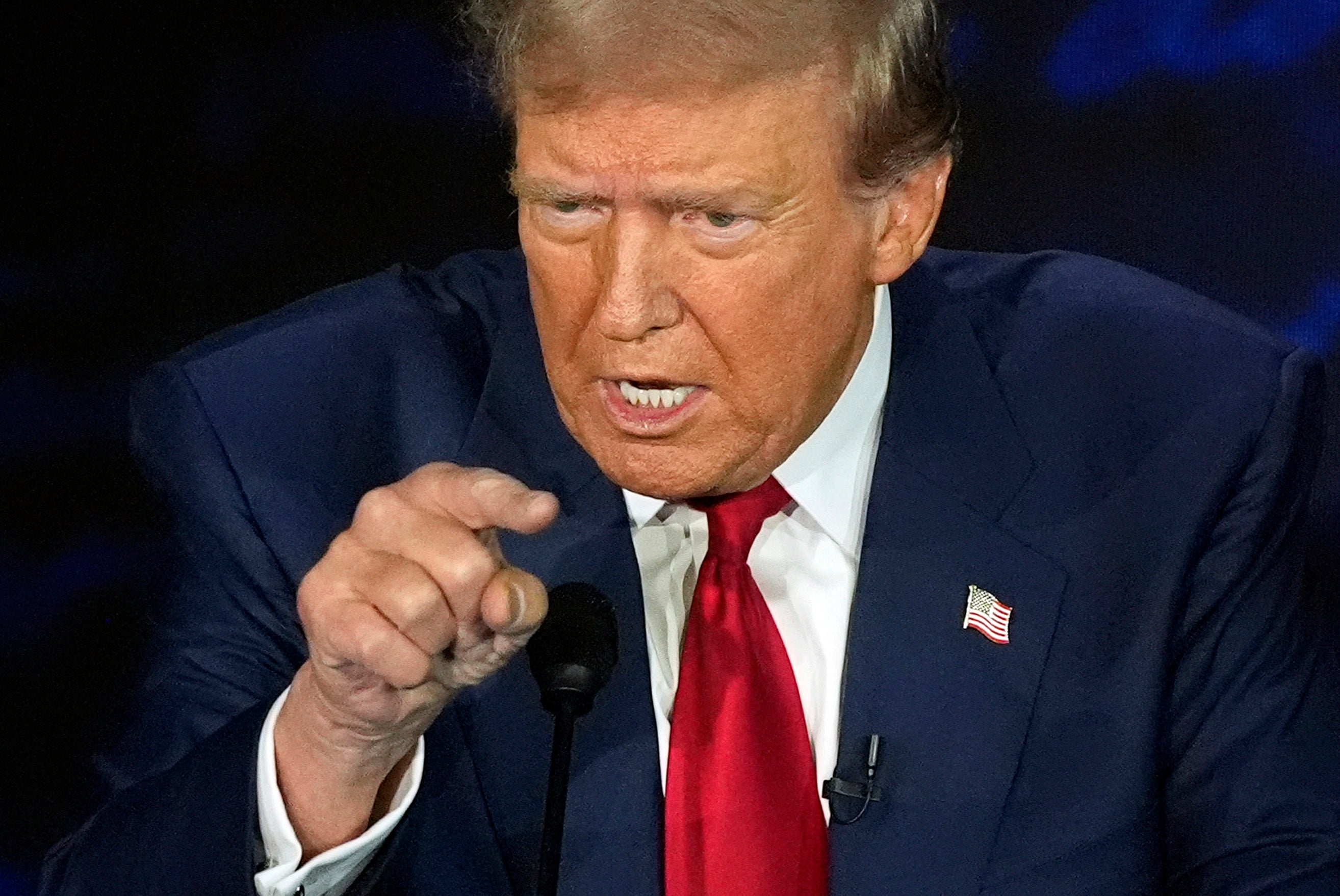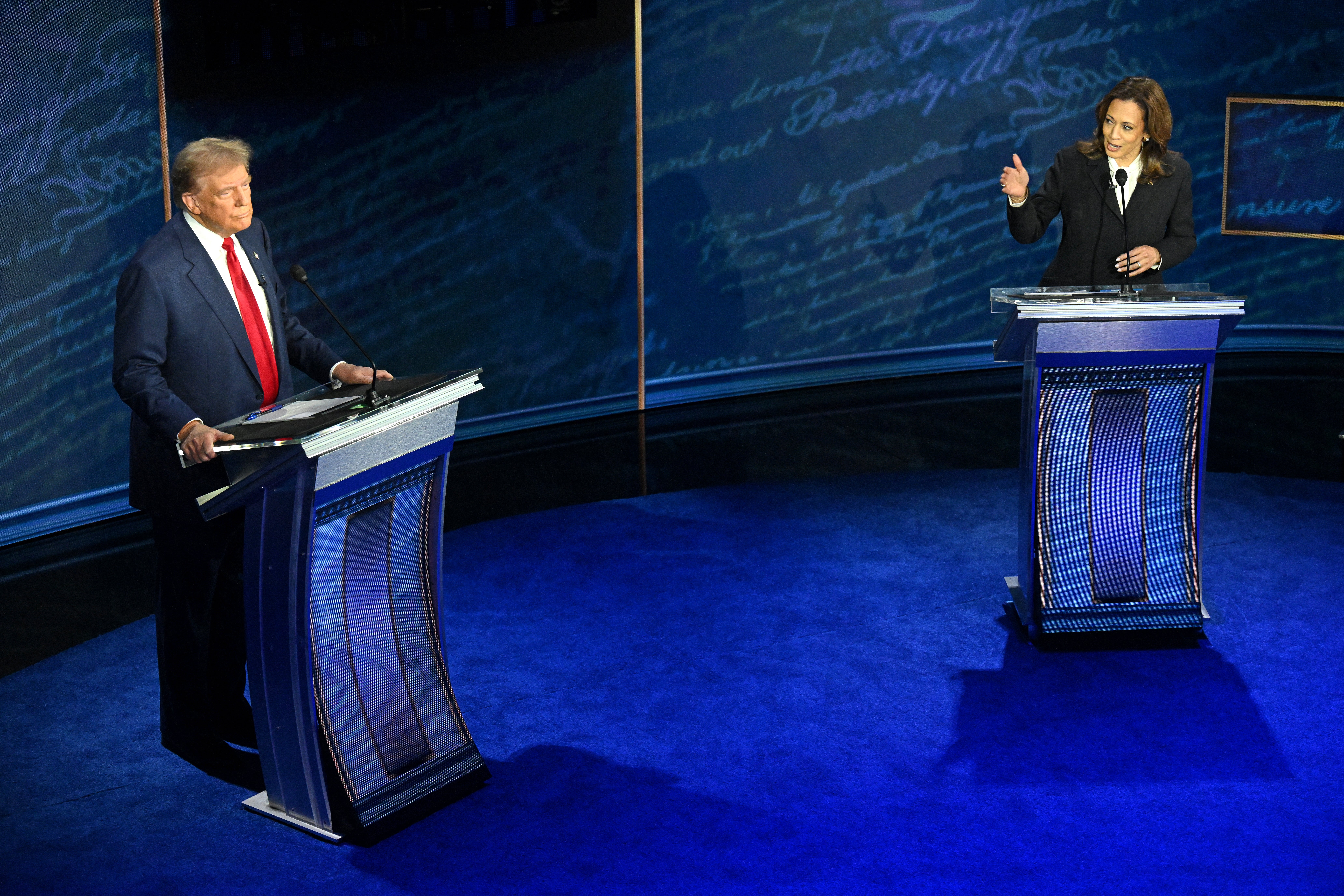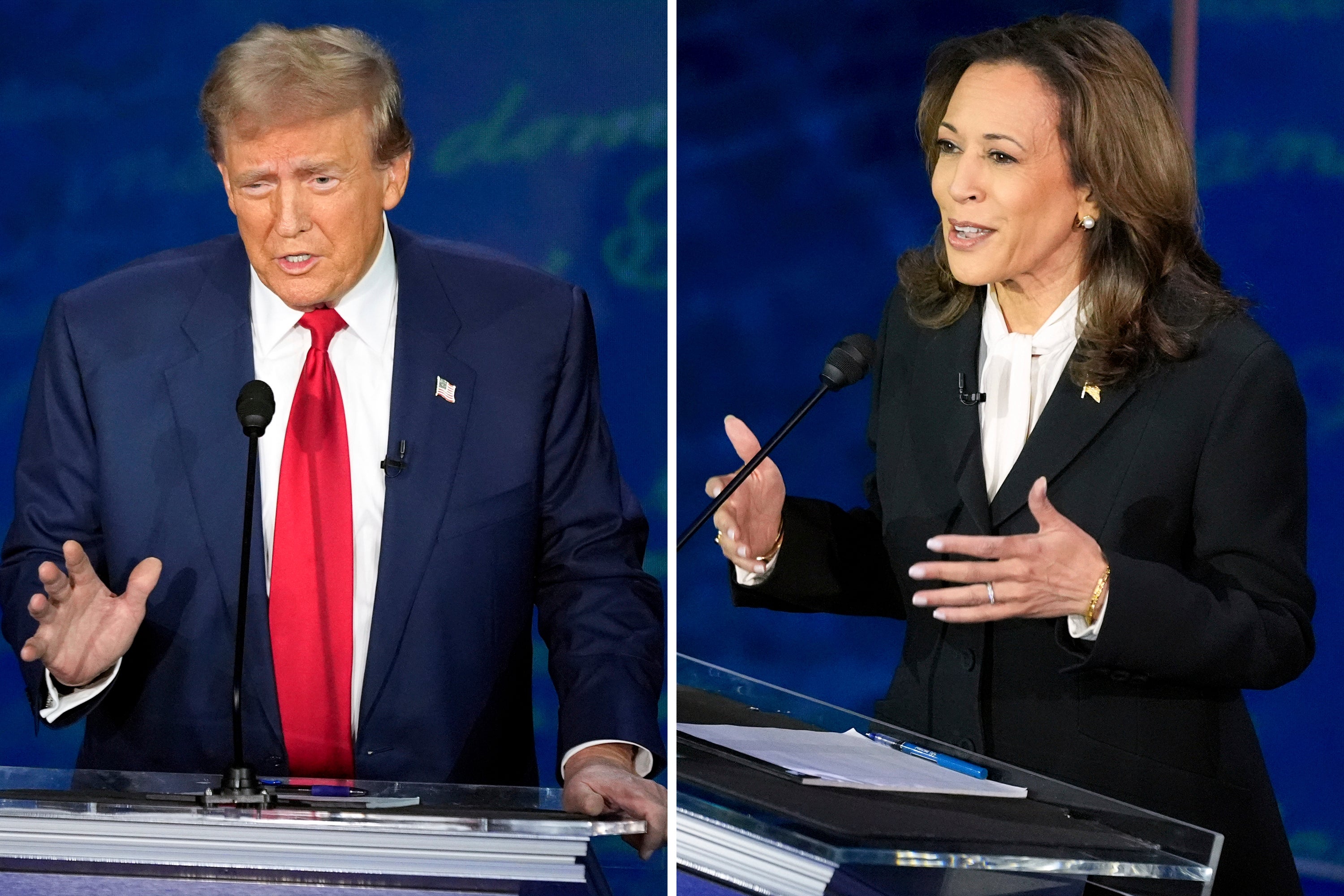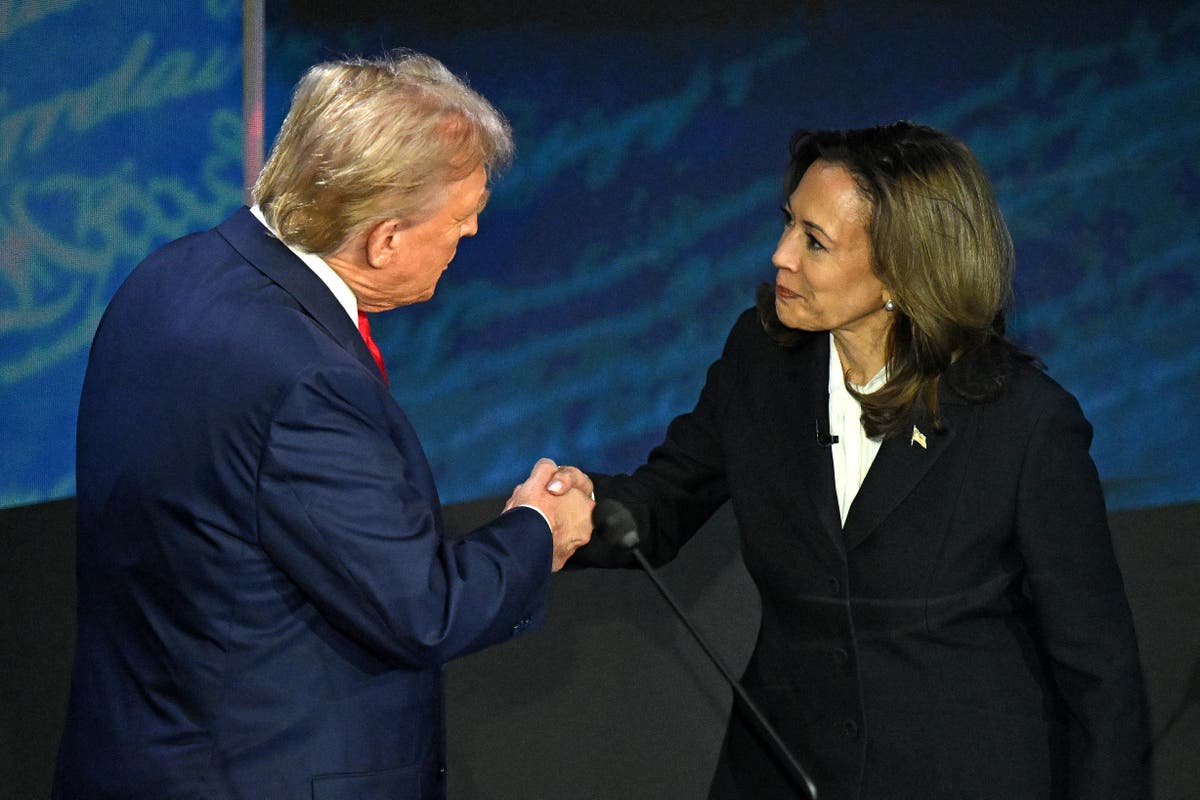Donald Trump’s campaign and allies had hoped a debate against Kamala Harris could give him yet another chance to finally deliver a focused attack against his Democratic rival.
Instead, he unraveled.
The former president repeated false claims about abortion, amplified conspiracy theories, and grew frustrated and defensive over discussion of his rally crowd sizes in a series of flailing responses in their first, and potentially last, presidential debate of 2024.
By the end, he was predicting a Third World War without him in office, and one of the world’s biggest pop stars Taylor Swift was endorsing his rival.
In their highly anticipated prime-time matchup in Philadelphia on Tuesday, the former president repeated discredited claims about immigrants stealing and eating pets, falsely stated that abortion patients are killing their children after they are born, and steamed over Harris’s accusations that his supporters are leaving his long-winded rallies “exhausted and bored.”
The first-ever face-to-face meeting between the Republican and Democratic presidential candidates presented not only starkly different visions of America’s future, but what America’s reality even is.
Harris pitched to voters an opportunity to leave Trump’s distortions in the past and instead “build on the aspirations and hopes of the American people.”

Trump, by contrast, was spiraling, turning to his worn-out list of lies and personal attacks as he seemed to struggle with the fact that he is no longer running against Joe Biden.
ABC News moderators Linsey Davis and David Muir were tasked with directing what could have been 90 minutes of chaos. But without an audience, and with a muted microphone when it wasn’t his turn to speak, Trump appeared alone, flailing, not in control, and visibly rattled.
He repeatedly tried to turn the conversation to immigration, claiming that immigrants are “taking over buildings … violently,” and blurting out at one point that Harris “wants to do transgender operations on illegal aliens that are in prison.”
Haitian immigrants in Ohio are “eating the dogs,” he said.
“The people that came in, they’re eating the cats,” Trump said. “They’re eating — they’re eating the pets of the people that live there.”
Harris, laughing and shaking her head in disbelief, appeared to say “this is unbelievable.”
“Talk about extreme,” she said.
She predicted at the start that Trump would turn to immigration throughout the debate, a topic that she said he wields against his supporters to scare them into voting for him.

Trump, Harris said, “would rather run on a problem than fix a problem.”
At his rallies, “he talks about fictional characters like Hannibal Lecter” and claims that “windmills cause cancer.”
“And what you will also notice is people start leaving his rallies early out of exhaustion and boredom,” she said. “And I will tell you the one thing you will not hear him talk about, is you.”
Trump, lashing out in response, and clearly stung by the dig at his crowd sizes, fired back that “nobody” goes to the vice president’s events except people who are “paid” and “bussed in.”
On the future of abortion access, Harris argued that “one does not have to abandon their faith or deeply held beliefs to agree that the government — and Donald Trump, certainly — should not be telling a woman what to do with her body.”
Trump, on the other hand, falsely asserted that physicians are “executing” babies “after birth.”
He refused to plainly state that he would veto a national abortion ban, if one passed Congress and arrived on his desk.
Asked whether there was anything he regretted about his response to the attack on the Capitol on January 6, 2021, Trump said he “had nothing to do with that” and once again pivoted to demanding the prosecution of people crossing the US-Mexico border.
“For everyone watching who remembers January 6, I say, ‘We don’t have to go back,’” said Harris, who was a senator inside the Capitol that day.
“It’s time to turn the page,” she added. “And if that was a bridge too far for you, there is a place in our campaign for you.”

Asked whether his recent statements that he lost the 2020 election “by a whisker” are his years-delayed admission of defeat, Trump said he was speaking “sarcastically.”
He pointed to the millions of votes he received in 2016 and 2020, failing to mention that Biden received more.
Harris, borrowing a line from her opponent, said that Trump was “fired by 81 million people.”
A question about Trump and his allies elevating bogus and racist attempts to undermine her biracial background gave Harris a chance to cycle through his legacy of racist attacks, from a federal lawsuit in the 1970s targeting alleged racial discrimination at Trump housing developments, to his latest statements about the vice president.
“I think it’s a tragedy that we have somebody who wants to be president who has consistently over the course of his career has used race to attempt to divide the American people,” she said. “I think the American people want better than that — want better than this.”
In her opening remarks, she reminded Americans “what Donald Trump left us,” listing what she said the Biden administration inherited after Trump’s four-year team: the “worst unemployment since the Great Depression,” the “worst public health epidemic in a century,” and “the worst attack on our democracy since the Civil War” following a Trump-fueled mob’s attempt to overturn 2020’s election results.
“What we have done is clean up Donald Trump’s mess,” she said.
Trump, the first criminally convicted former president, is running for office a third time on his “Make America Great Again” agenda, with a retribution-fueled campaign painting an apocalyptic vision of the nation overrun by violent crime and dogged by a flailing economy under Biden’s administration. Trump has now pinned the blame for all of the above on the vice president.
Harris has embraced a “we’re not going back” slogan, opting for optimism and the promise of an “opportunity economy” that would build off Biden’s platform.
Tuesday’s debate arrived less than two months before Election Day, and just seven weeks after Biden ended his re-election campaign and endorsed the vice president as the Democratic nominee.
Harris formally accepted the nomination at the Democratic National Convention less than a month ago on August 22, marking an extraordinary turn of events that have compressed the typically months-long election cycle into a few crucial weeks.








